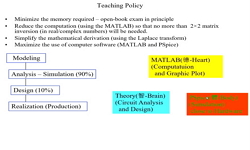Oil-water separation is a critical process for several industrial applications, including oil production, wastewater treatment, food processing, and environmental area such as marine oil spills. The separation efficiency of oil-water mixtures can be i...
http://chineseinput.net/에서 pinyin(병음)방식으로 중국어를 변환할 수 있습니다.
변환된 중국어를 복사하여 사용하시면 됩니다.
- 中文 을 입력하시려면 zhongwen을 입력하시고 space를누르시면됩니다.
- 北京 을 입력하시려면 beijing을 입력하시고 space를 누르시면 됩니다.
https://www.riss.kr/link?id=A108598283
- 저자
- 발행기관
- 학술지명
- 권호사항
-
발행연도
2023
-
작성언어
-
-
주제어
유수분리 ; Oil-water Separation ; 부력 ; Buoyancy ; 흡착재 ; Absorbent ; 필터 ; Filtration ; 젖음성 ; Wettability
-
KDC
500
-
등재정보
KCI등재,ESCI
-
자료형태
학술저널
- 발행기관 URL
-
수록면
69-79(11쪽)
- DOI식별코드
- 제공처
-
0
상세조회 -
0
다운로드
부가정보
다국어 초록 (Multilingual Abstract)
Oil-water separation is a critical process for several industrial applications, including oil production, wastewater treatment, food processing, and environmental area such as marine oil spills. The separation efficiency of oil-water mixtures can be influenced by various factors such as mixture composition, oil and water conditions, and the separation technology used. Over the years, various technologies have been developed to separate water and oil by physical, chemical and biological methods. This paper presents an overview of the various methods and technologies available for oil-water separation, including gravity separation, centrifugal separation, and separation using adsorbents, filters. The strengths and limitations of each method are discussed, along with recent research trends and future prospects. Furthermore, this paper aims to provide direction for future research and industrial application of sustainable and environmentally friendly oil-water separation technologies. In conclusion, we provide a comprehensive overview of recent oil-water separation technologies that will be beneficial to researchers and industrialists in the field of oil-water separation.
동일학술지(권/호) 다른 논문
-
두께방향 섬유체적비 불균일이 원통형 복합재 격자 구조의 비틀림 좌굴 하중에 미치는 영향
- 한국복합재료학회
- 전민혁 ( Min-hyeok Jeon )
- 2023
- KCI등재,ESCI
-
Effect of Cork Extract on the Mechanical Property of Thermoplastic Polyurethane
- 한국복합재료학회
- ( Taehoon Oh )
- 2023
- KCI등재,ESCI
-
머신러닝 및 딥러닝 기법을 활용한 유리섬유 직물 강화 복합재 적층판형 Circuit Analog 전파 흡수구조 설계에 대한 연구
- 한국복합재료학회
- 오재철 ( Jae Cheol Oh )
- 2023
- KCI등재,ESCI
-
플라즈마 아크 용해 공정으로 자발합성된 질화알루미늄 강화 알루미늄기지 복합재료의 개발
- 한국복합재료학회
- 정수진 ( Sujin Jeong )
- 2023
- KCI등재,ESCI





 ScienceON
ScienceON KISS
KISS






